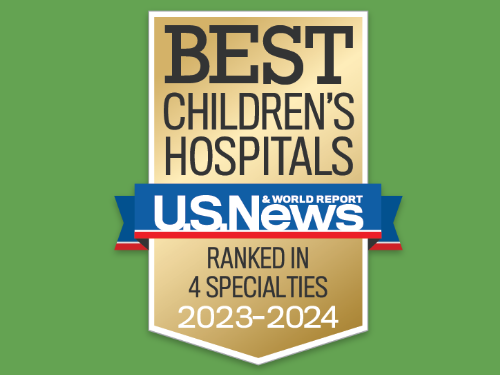What Is the Surgical Treatment of a Tumor In the Brain?
When a tumor is suspected, the first step is neuroimaging. Usually MRI scanning with and without a contrast agent is the preferred study. The contrast agent is a drug given intravenously which can provide additional detail of the tumor and surrounding nervous system structures. Once the MRI is completed, treatment decisions are made. Usually a surgical biopsy or resection is performed. Pathologic evaluation of the tumor directs subsequent treatment choices, which include chemotherapy and/or radiation therapy.
For most pediatric brain tumors, the extent of tumor resection is critical. A greater than 90% removal correlates with improved long-term survival. To enhance the safety of tumor resection, functional mapping techniques are utilized. These include magnetoencephalography (MEG) and intraoperative corticography. Both techniques can identify areas of brain critical to motor, sensation, and speech, so that these can be avoided during tumor resection. In addition, image guided systems allow computer guided resection of tumors.
The Pediatric Brain Tumor Team’s Approach to Treatment
With a family-centered approach, the team treats a variety of brain and spinal cord tumors, including:
- Medulloblastoma (primitive neuroectodermal tumor)
- Astrocytoma
- Glioblastoma multiforme (GBM)
- Ependymoma
- Choroid plexus papilloma and carcinoma
- Atypical teratoid-rhabdoid tumor (ATRT)
- Craniopharyngioma
- Ganglioglioma
- Dysembryoplastic neuroepithelial tumor (DNET)
- Germ cell tumors
What Happens After Surgery for a Tumor in the Brain?
Treatment following surgery is directed by the pathologic diagnosis, the location of the tumor, and the extent of resection. The care is conducted by a multidisciplinary team consisting of a neurooncologist, radiation oncologist, neurologist, and neurosurgeon. Treatment may be as simple as observing the tumor with serial MRI scans or as complicated as chemotherapy with radiation therapy. Coordinated care and long term surveillance should be part of every patient's care.
Contact Us
If you have any questions, use the online tool below to help us connect with you. To refer a patient or schedule an appointment, please contact our clinic using the information below.
- Pediatric Stroke Clinic
UT Professional Building
6410 Fannin, Suite 500
Houston, TX 77030
P: (713) 500-7164 - Pediatric Neurosurgery Clinic
6410 Fannin Street, Suite 950
Houston, TX 77030
P: (832) 325-7234 - UTHealth Houston Gulf State Hemophilia and Thrombophilia Center
6655 Travis Street, Suite 100
Houston, TX 77030
P: (713) 500-8366
To contact Children's Memorial Hermann Hospital, please fill out the form below.
